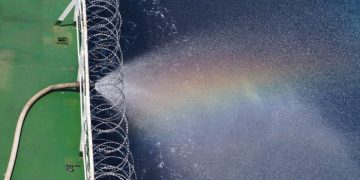ClassNK establishes Department of Ocean Energy Resources
Kyushu University has announced that it has established a new Department of Ocean Energy Resources with support from classification society ClassNK. This new department will join the Graduate Faculty of Engineering at Kyushu University and will be supported by ClassNK for two years from 1 April 2014 until 31 March 2016. The Department of Ocean Energy Resources is the result of comprehensive collaboration between ClassNK and Kyushu University to create an education hub to promote research into new technologies to develop ocean energy sources. As part of this collaboration, ClassNK will share the knowledge and experience it has gained over its some 110 years in the maritime industry as well as its expertise in offshore technology with Kyushu University over the 2 year research period. Research will cover new ocean energy sources such as the exploitation of methane-hydrates including the design, installation and operation of production platforms, as well as research into technologies renewable energy sources such as floating offshore wind power generation. In addition to its Natural Resources & Energy Department, which ClassNK established in 2011 in order to better support offshore energy resource development and transportation, ClassNK established its Wind Turbine Division in the same year to provide ...
Read more




















































